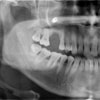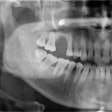Men with severe erectile dysfunction (SED) may be more likely to have advanced periodontitis, fewer teeth, and indicators of poor oral health, according to a new study published in the Journal of Periodontology.
Periodontitis severity, age, and diabetes may significantly increase a man’s likelihood of SED that would require prosthesis implantation, the authors wrote.
“Our results highlight, for the first time, a strong association between periodontitis and SED, suggesting that periodontal inflammation may be linked to advanced forms of ED,” wrote the authors, led by Dr. Antonio Magan-Fernández of the University of Granada in Spain (J Periodontol, August 17, 2025).
In a study published in May 2024 in the International Journal of Urology, it was revealed that the number of remaining teeth and periodontal health status were not linked to ED. However, the same study found that poor occlusal support conditions may be independently and significantly correlated with erectile dysfunction in men.
To explore the link between gum disease and SED in patients undergoing prosthesis implantation, an observational case-control study was conducted on patients with SED and patients with other conditions, such as penile curvature and Peyronie's disease, a condition that can cause curvature and painful erections. Periodontal clinical and biochemical variables, as well as other analyses, were assessed, according to the study.
Of the 81 men, 24 had SED and 57 had other conditions, like penile curvature. Compared to controls, the men with ED had fewer teeth (p < 0.001), more sites with attachment loss > 3 mm (p = 0.014), and more than three times greater Periodontal Inflammatory Severity Index modified (PISIM) (p < 0.001) scores, the authors wrote.
Multivariate logistic regression models revealed that PISIM scores greater than 4 (odds ratio [OR] = 13.9, confidence interval [CI]: 2.6 to 73.8, p = 0.002), those older than 55 (OR = 5.9, CI: 1.5 to 22.9, p = 0.010), and diabetes (OR = 7.0, CI: 1.3 to 37.9, p = 0.023) raised a man’s risk of having SED that required prosthesis implantation.
Nevertheless, the study had limitations, including its design. It did not allow for a direct causal relationship and instead only suggests a correlation. In the future, more prospective studies should be conducted, the authors wrote.
Additionally, the study shines a light on the possible systemic effect of gum inflammation and highlights the need for integrating oral and overall health strategies, they wrote.
“These findings support the hypothesis that chronic inflammation, as seen in periodontitis, may negatively impact penile vascular health and erectile function,” Magan-Fernández and colleagues wrote.




















